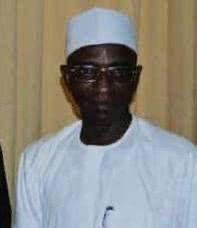Nigeria At The Edge: When leadership fails, history and heaven will judge, by Hassan Ahmad
There comes a moment in every nation’s life when history pauses and looks its leaders in the eye. For Nigeria, that moment is now. Our farmlands are deserted because farmers flee bandits. Markets are silent because prices have crushed the poor. Homes are broken as women become widows, men become widowers, and children become orphans—not by old age or illness, but by violence and neglect.
Instead of uniting to confront this disaster, politicians and elites—both in power and opposition—are busy calculating 2027. Party meetings are packed, rallies are noisy, and private jets are full, while villages are abandoned and IDP camps overflow.
The Warning of August 2024
The mass protests and unrest of August 2024 were not a footnote in our political history. They were a loud warning shot—a reminder that when hunger bites and trust collapses, even the most patient citizens can rise in anger. A Nepal-style revolt, born of despair, is not beyond imagination if today’s leaders continue to play games while the nation bleeds.
Leadership Is a Sacred Trust
In Islam, leadership is an amanah—a trust. The Prophet Muhammad (peace be upon him) warned: “When a man governs over ten people, he will be brought on the Day of Judgment in shackles until justice brings him release or injustice brings about his ruin.” Similarly, Jesus Christ taught, “To whom much is given, much will be required” (Luke 12:48). Both faiths—followed by the overwhelming majority of Nigerians—see leadership not as privilege but as responsibility, and the blood of the innocent as a crime that cries out to heaven.
A Nation Betrayed by Its Privileged
Let us be honest: 80% of today’s politicians and elites lived better, safer lives before they ever held office. Those born in the 1950s–1980s remember a Nigeria where children could walk to school without fear, where a bag of rice did not cost a month’s salary, where power supply was not a luxury, and where hard work—not connections—opened doors. To now preside over the decay of that heritage is more than failure—it is betrayal.
READ ALSO: Advertising Leaders Responsibly: Avoiding unnecessary pressure on citizens, by Hassan Ahmad
The Cost of Political Obsession
While leaders obsess over alliances, zoning, and ambitions, insecurity grows more brazen. Bandits, kidnappers, and insurgents are uniting faster than the political class. Inflation devours the earnings of ordinary families. Graduates roam jobless. Farmers abandon their land. Each day of delay is another grave dug for Nigeria’s future.
The Call to Conscience
This is not the time for blame games. It is not a North–South argument or a party-versus-party contest. It is a matter of survival. Leaders must:
1. Suspend excessive politicking and build an emergency coalition to confront insecurity, hunger, and poverty.
2. Deploy urgent relief to displaced communities—food, shelter, and medical care are not campaign gifts but human rights.
3. Support local farmers and small businesses to revive food production and restore dignity to work.
READ ALSO: Banditry in the Northwest: A call for political will and urgent action, by Hassan Ahmad
4. Strengthen dialogue and security coordination between federal, state, and community leaders to halt the killings.
5. Speak with one voice—not as APC, PDP, Labour, or NNPP—but as Nigerians, before unity erodes beyond repair.
Moral Accountability Before God and History
Islam warns leaders that “Allah commands you to render trusts to whom they are due and when you judge between people to judge with justice” (Qur’an 4:58). Christianity echoes this: “Woe to the shepherds who destroy and scatter the sheep of my pasture” (Jeremiah 23:1). These words are not ancient poetry—they are living indictments. The blood spilled in Sokoto, Plateau, Benue, Zamfara, Kaduna, Borno, Imo, and beyond will not vanish because politicians issue statements or stage photo-ops. Heaven’s record is meticulous, and history is unforgiving.
The Duty of the Generation That Knew Better
We—the generation that knew a peaceful, hopeful Nigeria—owe it to our children and grandchildren to defend their right to that same dignity. To ignore this duty is to declare that their lives are cheaper than ours once were. Elders who watched a safe and prosperous Nigeria decay into fear and hunger cannot stand aside. This is a moral battle: to choose convenience over conscience is to fail both God and posterity.
Conclusion: Let Politics Wait, Let Humanity Lead
The elections of 2027 will mean nothing if there is no country fit to govern. If today’s leaders refuse to rise above self-interest, tomorrow’s streets may rise against them. But if they act now—united, selfless, and urgent—they can prove that Nigerian leadership still carries a conscience.
Let politics wait. Let ambition rest. Let compassion move. The choice is theirs, but the consequences will belong to all of us.
Follow the Neptune Prime channel on WhatsApp:
Do you have breaking news, interview request, opinion, suggestion, or want your event covered? Email us at neptuneprime2233@gmail.com





